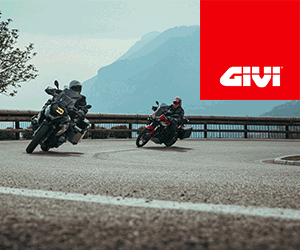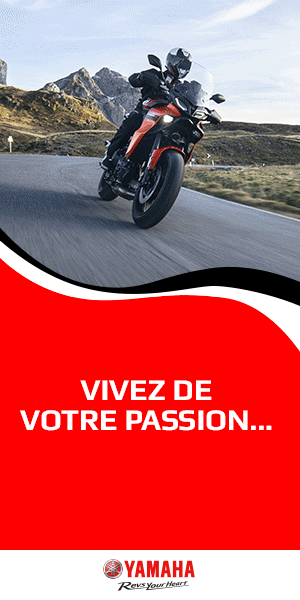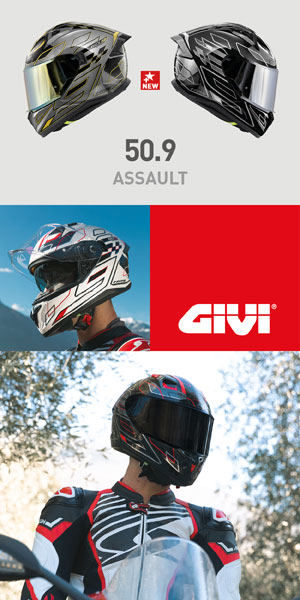Many Moto2 and Moto3 riders have only had one or two seasons in their category, or even started completely this year. Some progress very quickly and see their name appear more and more often at the top of the rankings. Others take their first steps and discover the World Championship. Although they are discreet, these young drivers work hard and at Paddock-GP, we noticed them.
We therefore went to meet them to learn more about them, their journey and their objectives in order to present them to you.
For this eighth episode, we met the Japanese Ayumu Sasaki who plays for the Petronas Sprinta Racing team in Moto3.
Ayumu, can you introduce yourself?
My name is Ayumu Sasaki, I was born on October 4, 2000, so I am 18 years old. I have an older brother and an older sister and I live about forty minutes outside of Tokyo, Japan.
At what age did you start riding?
At seven years old. My grandfather gave me a motorcycle for my birthday.
Does your passion come from your family?
Yes because my father was a pilot.
What championships did you participate in before arriving at the World Cup?
I started with the Japanese 50cc Championship at the age of nine. The following year I moved to a 100cc and won the championship. I then progressed to 125cc, I won a lot and I ended up in the Asian Talent Cup in 2014, so I was 14 years old. I was crowned champion the following year, in 2015, while also competing in the Red Bull Rookies Cup. I also won the title in my second year, in 2016, before arriving in the Moto3 World Cup in 2017. I couldn't before because you have to be 16 to enter and I only got them at the end of the year.
Your first appearance in the World Championship was during the 2016 Malaysian Grand Prix where you replaced the injured Enea Bastianini. How did it go ?
I had already won the Rookies Cup, but at that time I was still only 15 years old. I celebrated my 16th birthday on October 4th and luckily Malaysia was from the 28th to the 30th. So I was of legal age to do this replacement but I wasn't expecting it at all! So I wasn't ready and didn't set any goals for myself other than trying to learn as much as possible. The level was very high and, what's more, it rained most of the weekend. The race took place in mixed conditions and I crashed in the second corner of the first lap. I didn't ride much and it didn't help me in terms of driving, but I was able to become aware of what the World Championship was.
So you definitely arrived in the Moto3 World Cup from 2017 in the Petronas Sprinta Racing team where you stayed this year. How did your first two seasons go?
My first Grand Prix of the year, in Qatar, went very well since I finished eleventh. From there, I expected a lot more of what happened. I said to myself “in Argentina I can aim for a top 6 and then in Austin a podium. » In reality I finished twentieth and fifteenth. These two races were very tough. From there I realized that the World Championship was not easy. This first year was therefore difficult because I had a lot to learn against fast and experienced drivers. I alternated races in the points and races outside the points with two 10s (my best result was a seventh place) but that was really my limit. So I was disappointed with my first season, even though I realize that it was good for a beginner and that I also won the title of best rookie in 2017.
This year, on the other hand, I had the experience to have a good season and I am therefore even more disappointed. Until Austria I had practically the same season as last year: a good race in Qatar with a top 10, three races in the points but the rest quite far away. At the Red Bull Ring we then decided to change the settings because we were not going in the right direction. I saw that I was missing something and that I was also missing something but I didn't know what. I saw my former competitors from the Rookies Cup or even those who had started at the same time as me last year like Bezzecchi fighting in front while I stagnated.
From Austria onwards we made a lot of progress and I also regained my confidence, which I had started to lose. This was my best race because I started eighteenth and had great pace (I actually set the best lap in the race). I “only” finished seventh because by the time I got back, the leading group had escaped but I clearly could have been with them so that was very positive.
Unfortunately, from the next race, I was unlucky. I had qualified very well and was around sixth place when several riders crashed in front of me and I couldn't do anything to avoid crashing too. I broke my wrist and it completely stopped our recent progress which was really important. This race was to reinforce that before starting to aim for the podium from Aragon. I had to miss the Grand Prix to come back to Thailand. I finished first in FP2 there for the first time and I also led the race for the first time. Even though I ultimately crashed, I was very happy. I then had two top 10 finishes in Japan and Australia. I could have done better due to tire and strategy problems, but it's still positive. Then I was unlucky again in Malaysia.
We're going to say that it wasn't my year and we're going to hope that this bad luck turns into good luck in 2019. Whatever happens, I learned a lot during these two years, especially how to stay motivated without getting on the podium ( which had never happened to me before arriving at the World Cup).
What is your goal for 2019?
I remain in the same team and have all the cards in hand to do well. It is therefore very high: to win the Championship! I prefer to set myself something demanding throughout the pre-season and then we will see in Qatar how things go. I can not wait to be there.

Check out previous episodes:
Episode 1: Andrea Locatelli (Moto2) / Episode 2: Dennis Foggia (Moto3) / Episode 3: Iker Lecuona (Moto2) / Episode 4: Alsonso Lopez (Moto3) / Episode 5: Albert Arenas (Moto3) / Episode 6: Marcos Ramirez (Moto3) / Episode 7: Augusto Fernandez (Moto2).





















